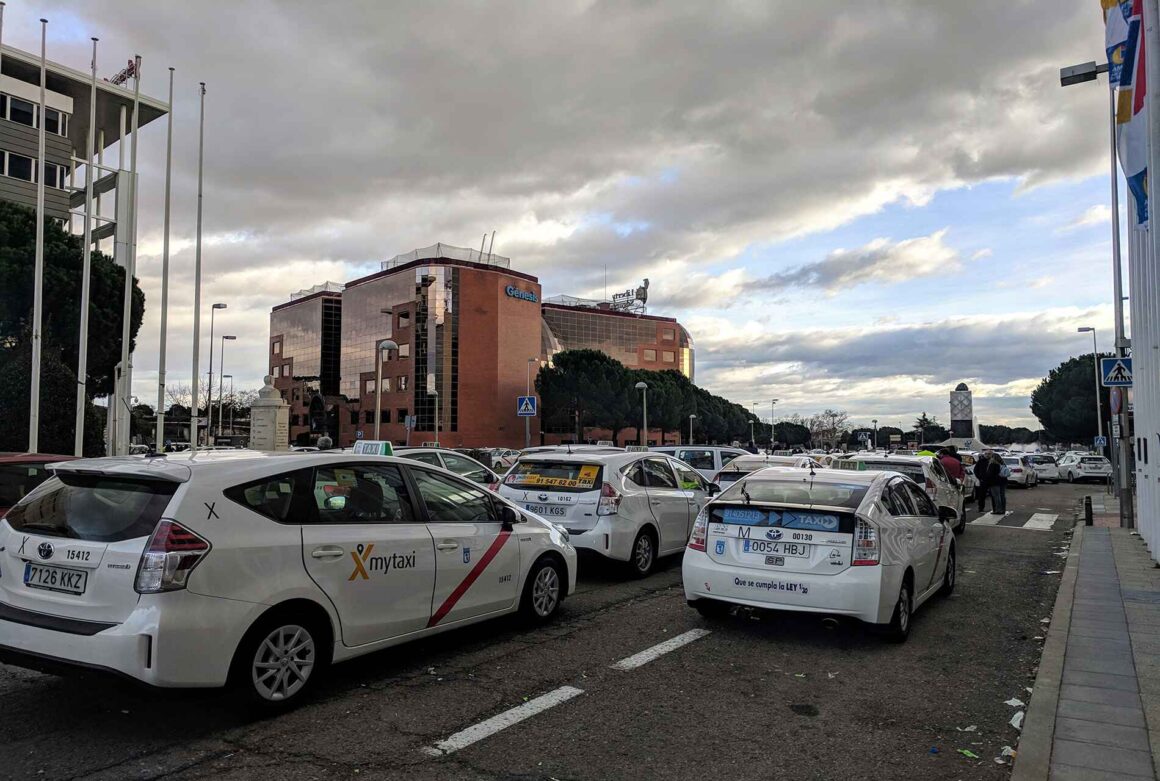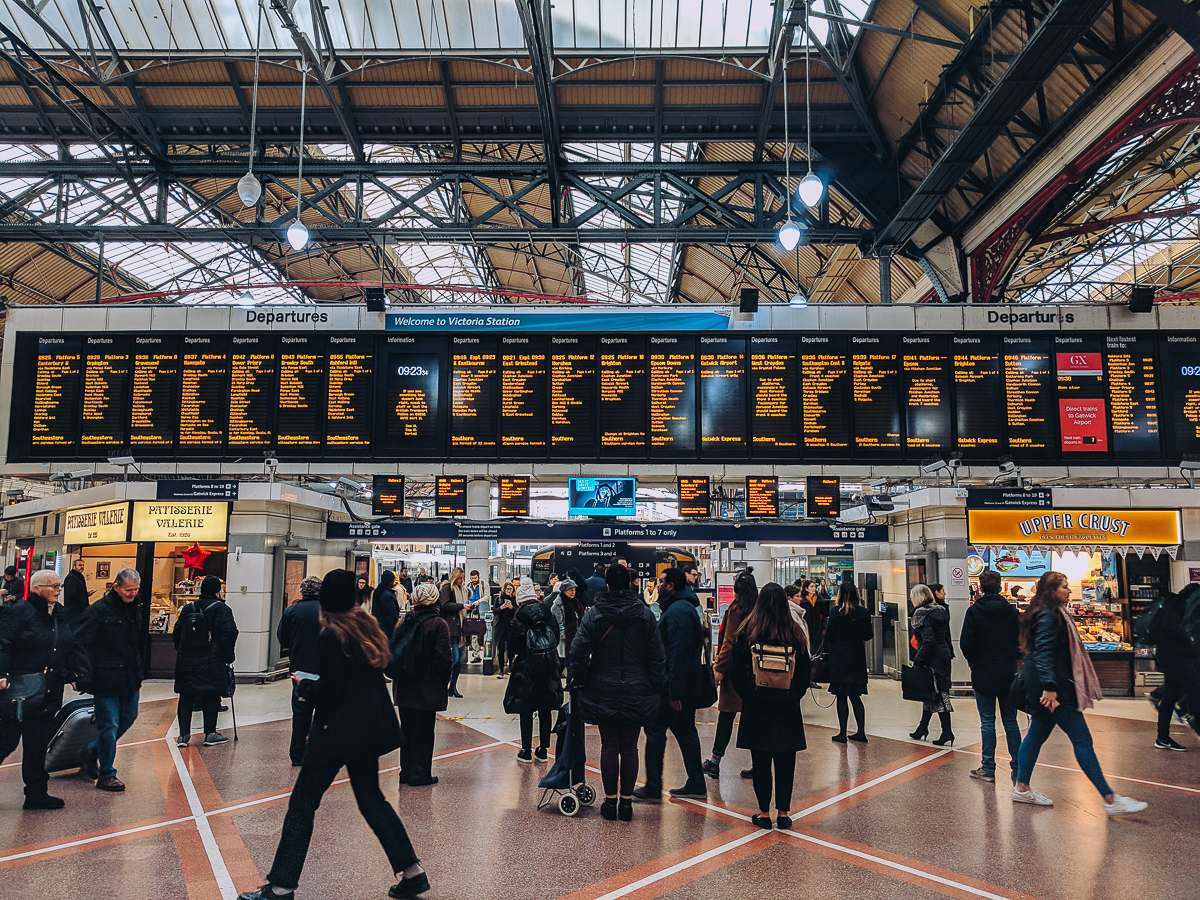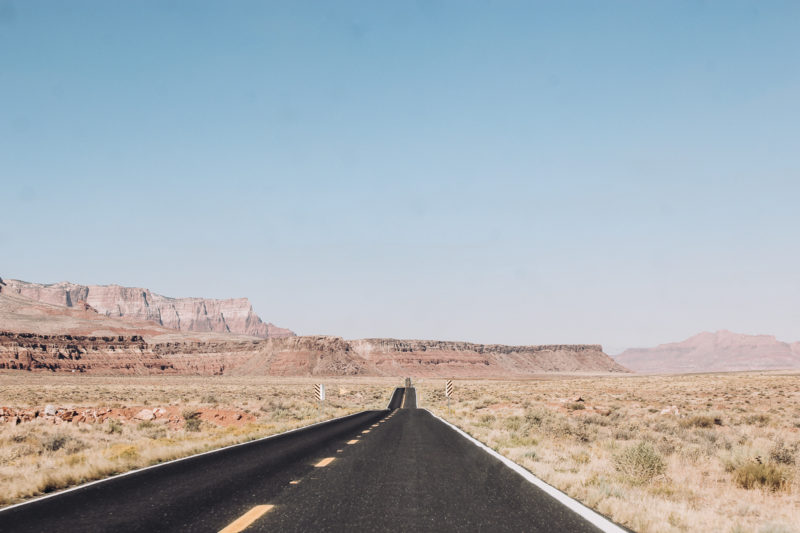20+ Practical Travel Safety Tips Every Traveler Needs
It doesn’t matter if you are a first-time traveler or someone who’s done it a million times, safety should always be the top priority when traveling. A few travel safety tips can go a long way in helping keep you secure. Think of these things as part of your travel toolkit – small habits and things you can do to make a big difference in your safety. While no trip is ever completely risk-free, good preparation and common sense can help you enjoy your trip with confidence.
This article contains affiliate links. That means I may earn a commission, at no extra cost to you, if you book or buy something from a link I provide. This keeps pay the bills and keeps Southerner Says online and on the road. Thank you for your support.
Helpful Travel Safety Tips
Travel safety tips aren’t anything new. Most travelers are familiar with well-known advice like keep your hotel door locked, avoid flashing money or jewelry and trust your instincts. Tips like these are familiar, but we all need reminders at times. Even the most well traveled person can benefit from a refresher. The following tips are a few ways to help you stay safe while traveling.
1. Research Your Destination
Before you buy a ticket, it’s important to thoroughly research your destination. Even when traveling domestically in the United States – or your home country – keeping a check on current events and what’s going at your destination is important for your safety.
Things like civil unrest, protests, strikes and natural disasters can really impact your trip – affecting or interrupting travel plans. For U.S. residents the best way to check on the state of rest of the world is by visiting the Department of State’s website – the go-to source for international travel advice. This site provides up-to-date information to help you avoid any situations that might compromise your safety.
Then, once you arrive at your destination, keep up with current happenings by regularly monitoring local news or by putting alerts for the area on your phone. Doing this can help you stay ahead of any potentially dangerous situations and being caught off guard.

2. Have a Travel Plan
No matter where you go or how you get there, having a travel plan can help you stay safe. This doesn’t mean you can’t be spontaneous or add something unexpected to your itinerary and it doesn’t mean you need to have the entire trip planned out. It just means being a little more prepared.
Having a plan can keep you safer because you’ll be less likely to change that plan, therefore, less likely to have something go wrong. I found this out first hand that one time I didn’t make a plan for an airport ride and got into an unregistered taxi in Lisbon. For one thing, it cost me way too much money.
The other scary thing was the driver had to take me to an ATM to get that money. The situation could have ended badly. Thankfully, it didn’t – everything was fine – but this is just an example of how poor planning and not taking the time to prepare can potentially go wrong.
3. Share Your Location and Plans
Once you have a travel plan, share that plan and your location with a friend or family member. It may sound like a hassle – especially if you are the kind of person that likes to wing it and never knows where you might be on a particular day – but it’s really not that hard with a location sharing app.
Most people have Google Maps or WhatsApp – or both of them – already on their phone. You can easily share location with either of these. There’s even an option to choose how long you want to share your location, and you can turn it off anytime once you no longer need it.
To share in Google Maps, verify your location is turned on in your Google account. Then open Maps, click on your profile and select location sharing. In WhatsApp, once you initiate a conversation, click the paperclip in the text bubble at the bottom and click location. If you want a standalone app for location sharing try Life360.
4. Enroll in STEP
Besides travel warnings and advisories, the U.S. Department of State also offers a program called STEP – Smart Traveler Enrollment Plan. This program is free service and allows United States citizens, traveling and living abroad, to register their trip with the nearest U.S. Embassy or Consulate.
Once you enroll you’ll receive important information from the Embassy about safety conditions in your destination country, helping you make informed decisions about your travel plans. Enrolling also makes it easy for the U.S. Embassy to contact you in an emergency – whether it’s a natural disaster, civil unrest or a family emergency.
5. Don’t Tell Anyone You Are Traveling Alone
Humans are naturally curious and at times, even a bit nosey. When traveling it’s perfectly normal for people to strike up conversations and make small talk. The problem is part of that small talk usually questions about your travel plans and the number one most dreaded question – are you traveling alone?
The first time I traveled solo internationally, I couldn’t believe how many times I was asked if I was traveling alone. That question – and a few other things I would have liked to have know about traveling solo as a woman – would have been nice to know so I could have been better prepared.
But now you know. So, what do you say to someone that asks if you’re alone? It might be hard not to blurt out the truth but for your safety, don’t. It’s just not a good idea. To avoid stumbling around or blurting something out, the best way to deal with this is to be ready for it. Be prepared and have a good response prepared.
For example, you could say that you’re visiting or meeting friends that live there or you’re with your husband on his business trip and he’s working. It doesn’t matter as long as it feels natural to you. I don’t like lying but in this case, I think it’s okay and justified.
6. Protect Your Money
Tourists are ideal targets for pickpocketing and petty crime because it’s automatically assumes that they have money on them. Tourists are also easy marks because they get distracted – taking photos, looking at maps and just doing other things but paying attention to what they should be paying attention to.
To be safe, you should always try to be aware of your surroundings. When out and about, carry only what cash you need. Deter thieves use crossbody bags with slash-proof straps and carry wallets in the front pocket of your pants, especially in crowded places like trains. You can alos invest in a money belt and other RFID blocking accessories that protect credit card info.
If for some reason you do need to carry around a significant amount of cash, don’t put it all in one place. Spread it around. Put some on your person, in your shoe or another place. Even in a hotel room, guard your money by using the in-room safe when there’s one available. If there’s not one, then hide your money in various different hiding places in the room.
7. Always Be Aware of Your Surroundings
Being situationally aware of your surroundings is one of the most simple travel safety tips there is. Being aware and staying alert doesn’t mean you have to walk around all paranoid. It just means paying a bit more attention to what’s going on around you.
It’s easy to get complacent and distracted when you travel especially if you are traveling a place you’ve been before or if you’ve been in the location for awhile. The tendency is to get comfortable. But even smaller touristy towns aren’t exempt from petty crime. Don’t assume there’s less of a threat just because you’re in a place you feel safe. Always be aware and listen to your gut.
8. Keep Copies of Important Documents
Having copies – or even photos – of important documents like your passport and visa might not keep you safe, but it can save you a lot of time if they’re lost or stolen. Being prepared for the worst puts you one step ahead in replacing them if something does happen to your originals.
If you do make copies, then don’t carry them in your bag or suitcase – or with the your originals. Keep them separate, leave them in the room safe. To stay organized, I like to keep my travel essentials and important items in these multi-use bags.
9. Never Share Your Real Time Location
Social media is such a part of our lives now – selfies, stories and videos with our location and what we’re doing – it’s easy to forget that information is traceable. Hopefully, you don’t have someone paying that kind of attention to your whereabouts but even so, don’t make it easy for anyone to figure out where you are.
One simple way to stay safe while traveling is to avoid posting on social media in real time. Share your stories later so no one knows your exact location, and if you must post immediately, skip the location tag – you can always add it once you’ve moved on
10. Know What Areas Are Dangerous
Almost every city has neighborhoods that aren’t really meant for tourists. In Puerto Rico, for example, a traveler tragically lost their life after making a drug purchase and taking photos in a risky area on the island. In fact this neighborhood is right next to a popular attraction so it’s an easy mistake to make.
It’s super important to know what areas you should avoid before you wander around and get caught in a dangerous place. If you’re unsure, ask the concierge or someone at your hotel what areas should be avoided. And many destinations have tourist police to help with these kinds of inquiries.
11. Blend In As Much As You Can
When you travel internationally, it’s obvious you’re not a local – and there’s not much you can do about the way you look. But in many popular destinations with expat and remote worker communities, you can at least blend in by how you act, even if you don’t look like you’re from there.
Before visiting a location, learning a little bit about it is one of the most helpful travel safety tips there is. Educate yourself about the customs. Knowing something about the people there and how they do things can be very helpful. Then, adopt a few of those practices as best as you can.
One of the easiest ways to do that is the way you dress. There’s nothing that makes you stick out more than showing up somewhere dressed inappropriately in a bikini or shorts, when that’s not something a local would do. This just brings undue attention and that’s not a good thing to do as a traveler.
12. Write Important Things Down
We keep everything on our phones these days. So what happens if your phone is stolen or if for some reason you lose it or it quits working while you’re traveling? Just thinking about the prospect of being in another country with no phone and no contact info is pretty scary.
But it can happen. One of the smartest things you can do is keep important information – like contact numbers and other essential travel details – written down. Doing just this one simple thing can make a stressful situation feel much more manageable and help you stay calm while deciding your next move
Don’t forget to include an international number for your cell phone provider and your credit card company. Along with numbers of friends and family, the telephone number of your bank would be helpful to have on hand.
In addition to keeping a physical copy, consider emailing this information to yourself at an account you can access from any computer. Most hotels – and even many hostels – have business centers with public computers you can use in a pinch
13. Carry a Secure Handbag
You might be tempted to carry cute or expensive handbags when you travel – and there’s absolutely nothing wrong with that – but it might not the safest thing to do. A plain, non-descript bag can keep you safer and deter thieves in cities where purse snatching is more prevalent.
One of the best travel companies selling a variety of bags and accessories with handy safety features and theft protection built in is Pacsafe, Their purses, sling bags, backpacks and other accessories are made with locking zippers, anti-slash straps and RFID blocking materials.
I always use this bag when I’m traveling. It’s more than utilitarian than fashionable but it has a nice long strap, plenty of pockets and it’s also big enough enough to actually double as a camera bag if I need it to.
14. Learn the Basics of the Local Language
Learning a few words of the local language might not keep you safety but it does show you are a courteous traveler – and courtesy goes a long way when visiting another country. Locals appreciate tourists who make the extra effort to say simple things like “hello,” “thank you,” and “please” in their language. It may seem small thing genuine interest in the community you’re visiting and that’s always a good thing.
15. Keep Track of Where You Are
It might sound odd, but you’d be surprised how often travelers don’t know the name of the town they’re in. This could happen if you’re moving around a lot or exploring multiple destinations in a short time and can’t keep up. Beyond just knowing the town’s name, it’s always a good idea to know how to spell it and have the address of where you’re staying. Having this information can make emergencies, rideshares or asking for directions much easier.
16. Use Reputable Transportation
Planning your transportation ahead of time is another good way to remain safe when traveling. For example, if you’re flying to your destination, how will you get from the airport to your hotel? If you’re arriving late – or maybe feeling tired – it’s smart to have a plan in place before you land.
If your hotel offers a shuttle, take advantage of it. Not only can it save you money, but shuttle pickup areas are usually well lit and easy to find at the airport. The drivers are identifiable with uniforms and badges, offering extra peace of mind.
When there’s no shuttle available, Uber (or similar rideshare services) is an excellent alternative. The app shows the vehicle’s make, model, license plate, and even provides a pin to confirm with the driver. If the car doesn’t match the description, decline the ride and report it immediately.
Taxis can work well too, as long as you use official, licensed ones. Most airports and bus stations have designated taxi stands to ensure you’re getting a legitimate ride. One added benefit is that fares are usually based on mileage or zones, so you don’t have to worry about haggling – or getting taken advantage of like I once did.
17. Don’t Drink Too Much Alcohol
You can learn a lot about a destination by it’s food and drink. If you enjoy alcohol, then going out and having a cocktail or a glass of wine is part of travel. Also, local nightlife is a great way to meet people. The problem is, enjoying the night life when you are traveling solo is a bit harder, especially for females.
This doesn’t mean that you can’t do it – and have fun – but it does mean you need to be situationally aware at all times. To do that, you need to have a clear head by not indulging in too many drinks or other intoxicants since alcohol and drugs can lower inhibitions and make it harder to recognize danger.
I’m by no means excusing poor behavior or victim shaming. I’m only saying as travelers – and as females – we have to do whatever we can to stay safe at all times. That includes never leaving your drink unattended or accepting drinks from strangers.
18. Keep Your Phone Safe
I think by now, most people have learned that it’s best to leave expensive jewelry behind when you travel. But, I read plenty of stories about tourists having their phone stolen. Why? Because phone snatching is common in many counties and we have them in our hands just about all the time.
Avoid this by keeping your phone in your bag. It’s one thing to take it out for photos or to use it but having it out at all times – or setting on the table when you are eating – makes you a target. There’s a chance you could get distracted and next thing you know your phone is gone. Have you ever tried to get a replacement phone in another country? It’s not fun.
19. Book Creditable Tours
Safe travel means doing your due diligence when it comes to booking tours and activities. One of the best travel safety tips is to check out the reviews on websites such as Google and Yelp before you book a tour. You can even Google their name to see if they made the news or have had any accidents.
Same goes for choosing a cheap quote for a service or tour. Everyone wants to save money when they travel but putting yourself into sketchy or unsafe situation on tours to spend less is not the way to do it. Make sure the tour operators have the proper equipment and licenses.
Also, use care when booking tours and services through third parties and if you do, verify it’s a reliable third party like Viator or Get Your Guide.
20. Purchase Travel Insurance
Finally, one of the best travel safety tips is to buy travel insurance. No matter where you’re traveling- domestic or international – it’s a necessity. Travel insurance protects you and gives you peace of mind knowing that whatever comes up you’re covered.
For the casual or short-term traveler travelInsurance.com. is one of the best websites for comparing various policies with different companies and their products. It’s easy to add in trip interruption, trip cancellation and even evacuation coverage you need to leave the country or be flown out, in case of emergency.
That’s something that could cost thousands of dollars. Having travel insurance means there’s one less thing to worry about and more time enjoying your trip.
Travel Safety Tips: Final Thoughts
Any time you travel, there’s always the chance that things won’t go exactly as planned. The good news is that even a few simple safety habits can make a big difference. These are just some of the strategies I’ve found useful, but everyone has their own ways of staying safe on the road. What about you – do you have a favorite safety tip or trick you always use when traveling?
Need help planning safe, stress-free travel?
As a travel advisor, I help travelers find the right destinations, book trusted hotels and create itineraries with peace of mind in mind. Let’s plan your next adventure together! Click here.

Author: Lori Blalock
A girl raised in the South, Lori is the founder of Southerner Says and a travel advisor with over 100,000 miles of solo road trip experience. Passionate about public lands, sunsets, and good barbecue, she writes about and helps others plan memorable getaways across the U.S., Mexico and the Caribbean. When she’s not on the road, she’s living life back home in Georgia




